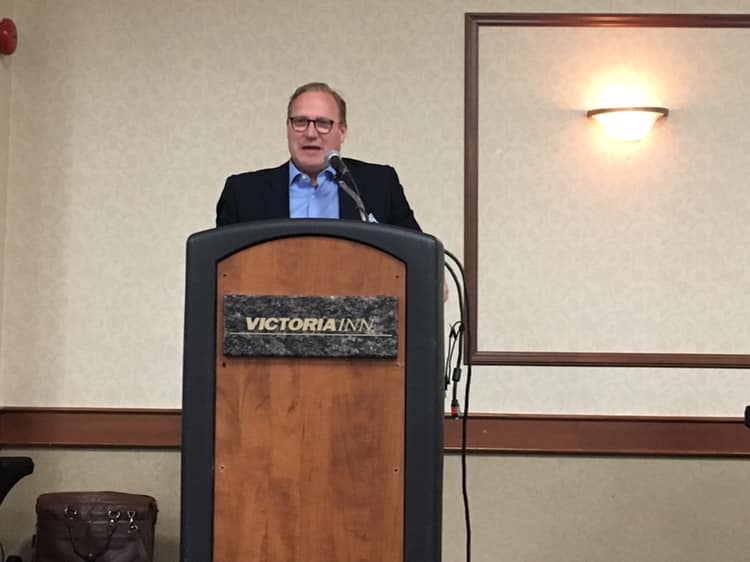
WINNIPEG — Manitoba’s Progressive Conservative government has moved very close to fulfilling its promise to balance the budget.
Final figures for the 2018-19 fiscal year released Thursday show the government recorded a deficit of $163 million. That’s $358 million lower than first predicted in the budget and $531 million lower than the previous year.
Finance Minister Scott Fielding said a main factor was higher-than-expected revenues from corporate and personal income taxes.
“Income taxes are about $193 million above what we budgeted for. What that shows is a resilient economy,” said Fielding, who added the economy in the 2018 calendar year grew by 1.2 per cent.
Another factor was less spending in many government departments. Health-care spending was up $103 million — or 1.6 per cent — from the previous year but $215 million lower than expected.
Fielding attributed the drop largely to some hospital construction projects completed ahead of schedule.
The reduced red ink puts the government “within striking distance” of balancing the provincial budget for the first time in a decade, Fielding said.
The Tories have promised to do so by 2022, following two downgrades from credit-rating agencies, and have set down fiscal controls that include a wage freeze for many public-sector workers.
Manitoba’s auditor general said he considers the budget already balanced. Norm Ricard said by normal public-sector accounting standards, the government ran a surplus last year of $9 million.
Ricard and the government have been at odds for two years over whether the province should include money held by the Workers’ Compensation Board and an agricultural trust program in its government numbers. The Tories say they don’t include that money because the cash is held by independent groups.
The Opposition New Democrats said the lower deficit is evidence that the Tories did not need to make spending cuts since coming to power in 2016. The government has closed three hospital emergency rooms and reduced subsidies for items ranging from public housing to sleep-apnea machines.
“They’re using these artificial deficits to create an economic crisis that doesn’t exist,” NDP legislature member Mark Wasyliw said.
“And they’re using it cynically to justify mean-spirited cuts … that we now know were completely unnecessary.”
The government also lost money on recreational cannabis in the first few months of legalization.
The province took in $5.3 million in cannabis retailer fees and wholesale markups between last October and March, but spent $7.7 million on public-awareness campaigns, new enforcement tools and more. More than half of that spending involved one-time costs associated with the start of legalized sales.
The province’s income from cannabis is expected to increase as more retailers open stores and supply shortages are addressed.
This report by The Canadian Press was first published Sept. 26, 2019.